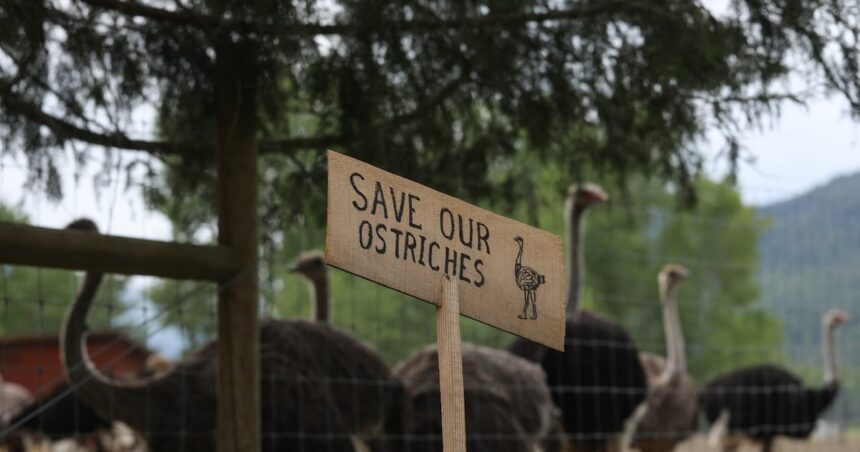The Federal Court of Appeal is set to examine a precedent-setting case involving a British Columbia ostrich farm’s challenge against Canadian Food Inspection Agency protocols, potentially reshaping how agricultural emergencies are handled nationwide.
Morrison Ostrich Farm, a family-owned operation in the Okanagan Valley, has escalated their legal battle after the CFIA ordered the culling of their entire flock following the detection of a single case of highly pathogenic avian influenza (HPAI) in December 2023. The farm’s owners, James and Sarah Morrison, argue that the blanket culling policy fails to consider critical distinctions between ostrich biology and conventional poultry.
“Ostriches are fundamentally different from chickens or turkeys in how they process and transmit viruses,” explained Dr. Eleanor Harrington, a veterinary pathologist who testified in the initial hearings. “The CFIA’s one-size-fits-all approach isn’t just economically devastating—it’s scientifically questionable.”
The case has garnered significant attention within Canada’s agricultural community, with industry associations from British Columbia to Nova Scotia monitoring the proceedings closely. The Morrison farm, which has operated for over three decades, represents one of Canada’s largest specialized ostrich operations, providing meat, leather, and feathers to domestic and international markets.
Court documents reveal that the Morrisons proposed alternative containment measures, including isolation protocols and enhanced testing regimes that would have preserved most of their 280-bird flock. The CFIA rejected these proposals, citing established emergency response guidelines for avian influenza outbreaks.
“We’re not challenging the agency’s authority to protect Canadian agriculture,” said Rachel Goldstein, the farm’s attorney. “We’re challenging their refusal to adapt science-based protocols to different species with different risk profiles.”
Agriculture economists estimate the financial impact on the Morrison operation exceeds $2.3 million, accounting for both immediate losses and long-term breeding stock implications. Unlike conventional poultry operations, specialized exotic bird farms often maintain unique genetic lines developed over decades.
The Federal Court of Appeal hearing, scheduled for next month in Vancouver, will examine whether the CFIA properly considered its obligations under the Health of Animals Act to employ the “least destructive” methods necessary to contain disease threats.
“This case reveals the tension between precautionary principles and proportional response in agricultural emergency management,” noted Dr. Thomas Kwong, agricultural policy specialist at the University of British Columbia. “The outcome could influence how we approach species-specific risk assessment across Canadian agriculture.”
The Morrison case has attracted support from international veterinary organizations who have submitted amicus briefs questioning the scientific basis for treating ratites—the family of flightless birds that includes ostriches, emus, and rheas—identically to conventional poultry in disease management protocols.
Recent research published in the Journal of Veterinary Science suggests that ostriches may demonstrate different viral shedding patterns and transmission dynamics compared to chickens and turkeys, potentially justifying modified control measures during outbreaks.
As agricultural operations across Canada face increasing disease pressures from climate change and globalization, the Morrison case raises critical questions about balancing biosecurity with economic sustainability. Can our regulatory frameworks evolve to accommodate scientific nuance while still protecting the broader agricultural sector from devastating disease outbreaks?










